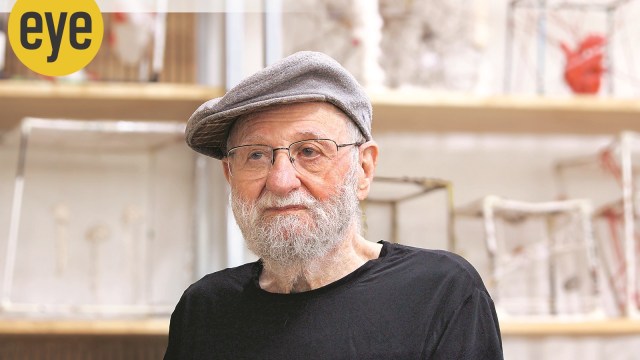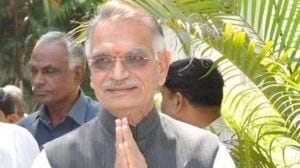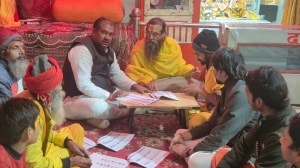Why good design is invisible according to design guru Don Norman
US-based design educator and strategist Donald Norman on his India observations, why design should be people-centric and how ordinary people can make a difference
 On numerous advisory boards including schools in India like the BITS Design School, Mumbai, Norman has visited the country multiple times and closely observed people and society.
On numerous advisory boards including schools in India like the BITS Design School, Mumbai, Norman has visited the country multiple times and closely observed people and society.US-based Donald Norman lives many lives as educator, industry strategist, consultant, speaker – all of which point towards a central theme: design. One who believes that “good design is actually harder to notice because it fits our needs and is invisible”, Norman, 88, can be called the conscience keeper of designers across the world as they measure their products against his yardstick of functionality and commonsense. So much so, in design shorthand, a “Norman door” is any door that is confusing to use – should you push, pull, glide, or simply wait to open.
On numerous advisory boards including schools in India like the BITS Design School, Mumbai, Norman has visited the country multiple times and closely observed people and society. While his most-popular book The Design of Everyday Things (DOET, 1988) is about good, usable products, his recent Designed for a Better World (2023) talks about humanity-centred design. The Don Norman Design Award organisation is a platform to encourage early practitioners and educational institutions to showcase socially-relevant projects. In this interview, he talks about the need for integrated learning in schools, measuring the quality of life and the problem with electric vehicles. Excerpts:
Your book, DOET, is a popular primer for those interested in understanding the basic design of things around them. What are your impressions of India?
During my recent visit to Bangalore, I met Sanjay Purohit, whose Centre for Exponential Change is doing small things, but in a way that impacts millions of people. I am going to partner with him on expanding the work because education is actually the best way. India is leading the world in education, not the government schools as much, but private schools that are giving their students liberal education. Often students don’t know why they are learning something, but you put them together in a cohesive team, and do a project that is interesting. They have to know finance, technology, art and history, and work with different people with different skills, and that, I think, is the proper way for education.
You’ve often spoken about how no matter what you create, human behaviour will almost always be antithetical to it. For instance, on Indian streets, no matter how high the street barriers, you still find people leaping over it.
If people are trying to do it, I would step back and not say, how do I prevent it? I would ask why are they doing it? Are they in a rush or is it because it’s shorter? Maybe what we need to do is not put up barriers, but make it easier and safer for people.
Congregational spaces are shrinking in India. Suddenly, food seems to be the only urban thing that we do together.
What has happened is that we let the diktats of business take over our lives. And we’ve forgotten about the quality of life. We measure the value of a country by how much it spends, the gross domestic product, that’s absolutely the wrong measure. I think we have lost our sense of value. It has to be about the quality of people’s lives before cars and stores and businesses.
Can you talk about circular economies? Do companies really care?
Well, I can’t talk about companies such as Apple, Microsoft or Google, because they don’t have a circular economy. In fact, Google had made all sorts of promises to reduce its energy consumption, but AI came along. And guess what, AI takes enormous amounts of energy. And where does the energy come from? In India, it’s mostly coal burning, in the Philippines it is mostly gas, and in the United States, we are transitioning, but we’re still mostly burning coal. And they can use up more energy in trading one system than a town uses for a whole year. The real problem is the economic system we live in. It’s not capitalism, because I think capitalism can be a very positive force. But it’s capitalism as is practised, where it’s all about profits. But there are companies that are changing. There’s a movement called the B Corp, where they are actually trying to change the rules of the game and help companies understand their social and environmental footprint.
In India, there’s a big push towards EV vehicles. Do you think that is the way forward?
It’s no magic bullet. The nice thing about electric vehicles, in general, is it doesn’t have toxic fumes and doesn’t pollute. But first of all, you have to manufacture it. What kind of harm are you doing during the manufacture? Second, as an automobile that’s run on batteries its engine is much heavier. When you’re driving, little micro particles of rubber are in the air. They are so small that nobody even notices them, but it’s really bad for your lungs. The other problem is, where does the electricity come from? Also, we don’t have enough charging stations. I do think EVs are one of the paths to a cleaner solution, but it doesn’t make sense until we solve these problems.
Could you talk about the projects that the Don Norman Award is involved in?
Well, what we have is people doing lots of small things. In Maharashtra, for instance, in the tribal district of Nandurbar, people are getting palliative health care, especially those with mental health issues. There was this one man who could not even move his hands. The villagers discovered he used to be a musician, so they bought one of these very inexpensive keyboards for him. It took a long time before he was able to move a finger and boom, that energised him. He managed to actually play music again. There are many such issues. There are lots of projects in the world trying to make a difference. It’s a small difference, but many, many small differences add up to a big difference. We want to show that everyday citizens can do wonderful things to help.
- 01
- 02
- 03
- 04
- 05































